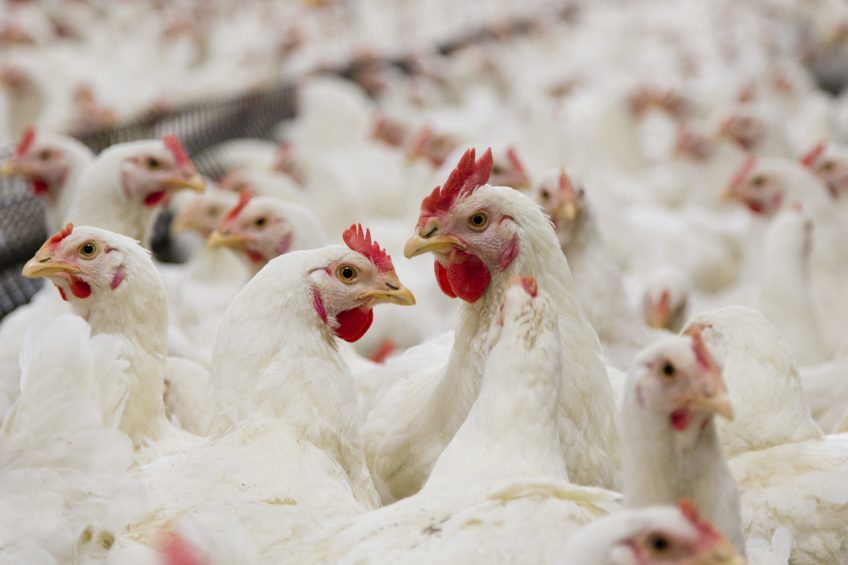Vaccine hopes rise in bid to conquer avian respiratory disease

Hopes are rising that a new vaccine strategy could offer protection to millions of chickens threated by avian infectious bronchitis.
The virus, characterised by respiratory signs including coughing, gasping, sneezing and nasal discharge, is highly contagious and responsible for major economic losses to the global poultry industry.
Morbidity is 100% in non-vaccinated broiler flocks and mortality varies according to the virus strain but can be up to 60% in non-vaccinated flocks. Infected birds experience weight loss, decreased egg production and impaired egg quality and are left vulnerable. For example, for some strains, a kidney infection may follow causing mortality by toxemia.
Current vaccines protect against some virus strains but not others. Experts say these failures are possibly linked to differences in the spike protein – the protein which enables the virus to attach to and enter cells – between strains of the virus.
Research is needed to develop new vaccines that protect against multiple strains of infectious bronchitis.
Vaccine
So, researchers at the University of Edinburgh and the Pirbright Institute tested a new approach using a specialist type of vaccine – known as recombinant virus vaccines. These use harmless or weak versions of a virus to introduce microbes into cells in the body.
In this case, experts used recombinant viruses with different spike proteins as vaccines to build two versions of a harmless virus.
The results show the vaccine offered partial protection against infectious bronchitis virus, but further research is needed to develop a more robust vaccine. It is believed that these types of vaccines have the potential to be more cost effective and respond to emerging new virus strains. The next step will be to make a vaccine that remains harmless but introduces a stronger immune response.
Professor Lonneke Vervelde, who led the study at the University’s Roslin Institute, said: “There is a real need to develop new vaccines against infectious bronchitis that protect against multiple strains and offer rapid responses. We are trying to make a vaccine that offers broad protection, but further research is needed to develop a more robust vaccine.”
Dr Erica Bickerton at the Pirbright Institute, added: “Our research hopes to develop more cost effective and efficient commercial vaccines that are capable of protecting chickens against this serious disease.”
The research is published in the Journal of Virology.












